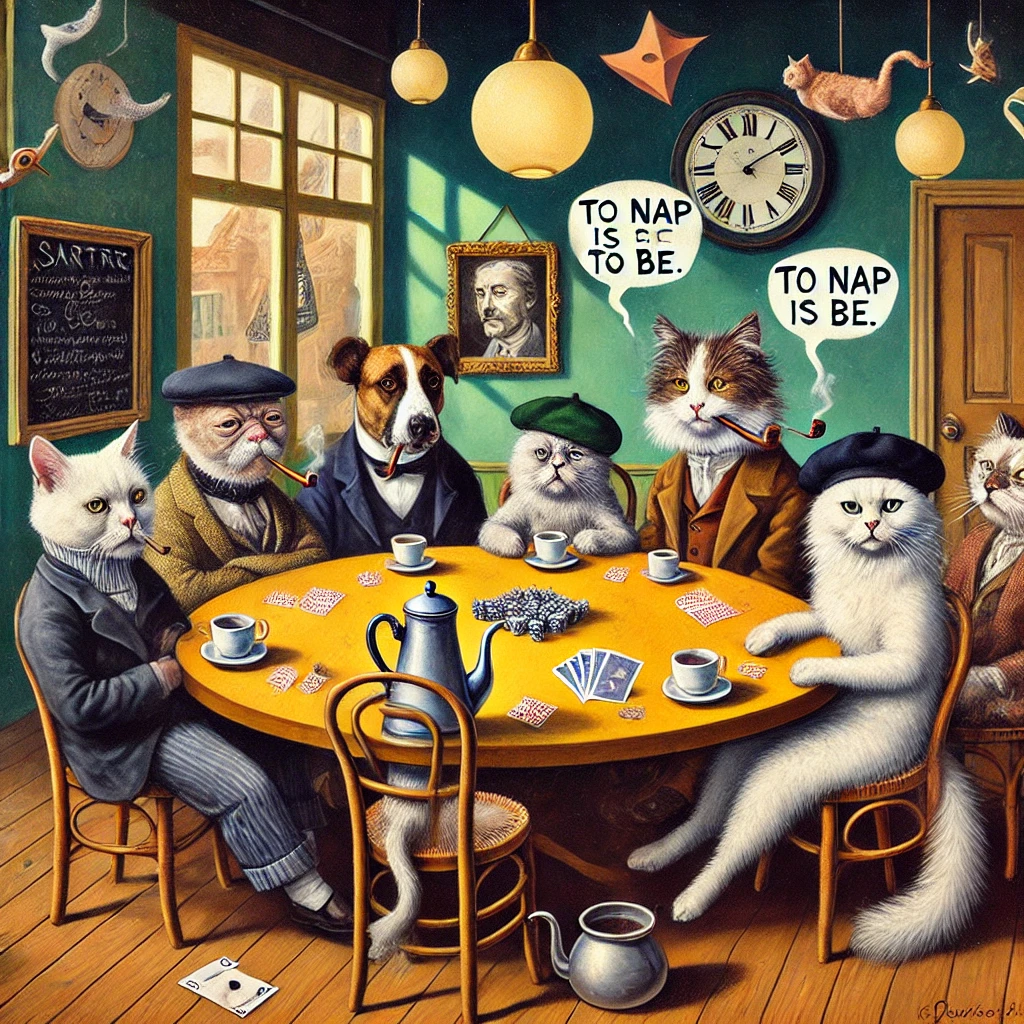You Are What You Do—Literally
Sartre says it plainly: we are condemned to be free. That sounds paradoxical, but it’s his way of saying we don’t have a pre-determined “essence” or nature that defines who we are before we start making choices. Unlike a rock, which just is, humans have the unsettling burden of deciding who we are, moment by moment. That means every decision we make is a little declaration of who we believe ourselves (and all people) to be.
Think of it like this: your morning routine, your friendships, your work ethic, and how you treat people at the grocery store—each choice reflects who you are. You’re not just doing things; you’re crafting your essence. Sartre argues that there’s no opting out of this. Even when you avoid making a choice, that’s still a choice—and one that defines you just as much as any deliberate action.
No One Can Tell You What to Do
This leads to a refreshing, yet terrifying thought: no one else can tell you how to live your life. There are no pre-written rules for you to follow, no ultimate guide to being the “best version” of yourself. If you’re waiting for a sign from the universe (or from someone else) to give your life meaning or direction, you might be waiting forever. Sartre believed that any meaning in life comes from us, from the choices we make in shaping our existence.
For example, if you’re in a dead-end job and dream of something better, the only thing standing in your way is the fear of taking action. No one else can make that leap for you; it’s all on your shoulders. This is empowering because it means you have the power to change things—but it’s also heavy because, well, you have to change things.
Bad Faith and Avoiding Responsibility
In everyday life, we sometimes blame external forces—society, parents, or circumstances—for why we’re stuck or unhappy. Sartre calls this living in bad faith. Bad faith is when we pretend we don’t have freedom or choice, using excuses to avoid responsibility. It’s when we convince ourselves that we have to do something, that we’re victims of our situation, when in reality, we always have the freedom to choose differently—even if that choice seems hard or scary.
For instance, if someone says, “I can’t quit my job because I need the money,” that’s a legitimate concern, but Sartre would argue that they still choose to stay in the job. They could quit and face the uncertainty of what comes next, but they’re choosing the perceived security of the current situation instead.
Life Isn’t Pre-Written: Make Your Own Meaning
Here’s where it gets liberating. Sartre didn’t believe in destiny or fate. Life isn’t a pre-written script you’re forced to follow. Instead, you get to write the script as you go. No God, no fate, no invisible force is pulling the strings. You are free to shape your life in whatever way feels authentic to you.
Sure, that’s a little scary, but it’s also a call to wake up and live intentionally. Whether it’s choosing kindness, deciding to chase a passion, or taking a risk on a relationship, those choices build meaning into your life. There’s no “right” way to do life, but every choice you make adds a brushstroke to the painting of your existence.
Sartre’s existentialism reminds us that we hold the power to define who we are and what our lives mean in a world that often pushes us to seek external validation or follow pre-defined paths. It’s not about waiting for someone to tell you what to do or where to go; it’s about embracing your freedom and accepting the responsibility that comes with it. There’s no safety net, but the good news is—you get to build the tightrope.
